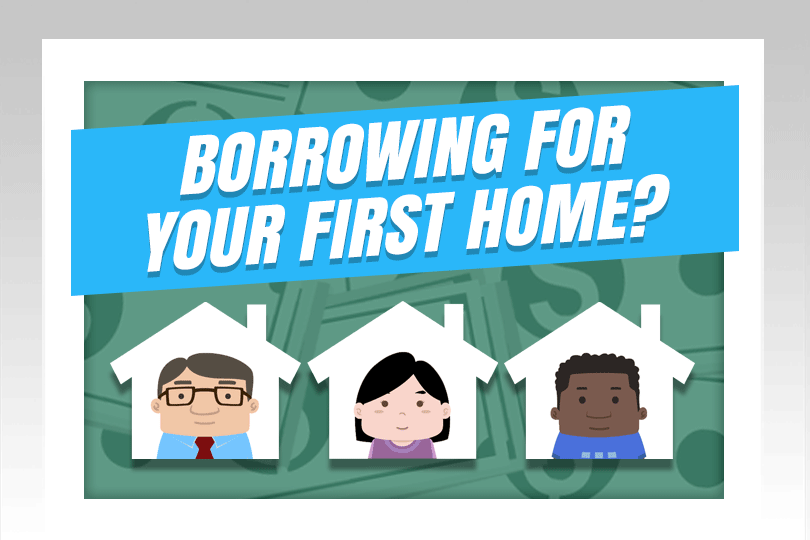Fixed Rate Versus Adjustable-Rate Mortgages
March 21, 2021
A Fixed Rate Loan is one with an interest rate that stays the same for the entire life of the loan. Your principal and interest amount changes from month to month as you pay down the loan, but the total amount you pay in interest is final, making it easier to budget and plan. With a fixed rate home loan, your amortization schedule is clear and complete.
An Adjustable-Rate Mortgage, commonly referred to as an ARM, gets more complicated. An ARM has an interest rate that changes over the loan term. The rate is set below the market rate for an initial, introductory period, which could be up to 10 years. After this initial period ends, the ARM will adjust.
To fully understand how an ARM works, there are a few key terms you will need to know:
- Adjustment Index: The interest rate adjustments on your ARM are dependent on an index that your lender uses as a benchmark. The FHA accepts market index figures of the Constant Maturity Treasury (CMT) index or the 1-year London Interbank Offered Rate (LIBOR).
- Adjustment Frequency. This is the between each interest-rate adjustment. For example, the FHA’s ARMs adjust annually.
- Margin: This is the number that is added to the index rate to determine your interest rate and is disclosed when you sign your loan.
Which One Works for Me?
There are pros and cons to both, the fixed rate loan, and the ARM. A fixed rate mortgage gives borrowers security of knowing how much they owe and the freedom to plan and budget for the future. However, this also means that they can be stuck paying a higher rate in a few years when the market rates drop, unless they choose to refinance.
With its lower interest payments, an ARM is considerably cheaper than a fixed rate mortgage, at least while the introductory fixed-rate period lasts. But borrowers are taking on the risk of a fluctuating market with rising rates in the future.
So which loan type is best? It comes down to each borrower’s needs and plan for the future. It helps to as yourself some questions when deciding.
How much can you afford?
If you are thinking about an ARM, it is important to be realistic. Run the numbers for a worst-case scenario and calculate your highest possible monthly payment. You might need to save during the initial low-interest period and put money away in case rates go up, or even make larger payments during that time so that the total loan is smaller when the interest rate adjustment occurs.
How long will you live in the home?
If this is your starter home, and you only intend to live there for a short amount of time anyway, it makes sense to sign up for an adjustable-rate mortgage and take advantage of the low rates during the introductory period.
In what direction are interest rates heading?
Talk to your loan officer and get their opinion on the market rates. Study trends and decide whether you can take on the risk.
Once you evaluate your needs and answer these questions for yourself, you will have a clearer idea of which option to choose. The FHA offers fixed and adjustable-rate loan options to borrowers and has the same qualification guidelines for both types. Contact your loan officer to take the first step!
------------------------------
RELATED VIDEOS:
Your Mortgage Payment Schedule Is Called Amortization
Information About the Balloon Payment
Reliable Borrowers Can Qualify for a Cash-Out Refinance

FHA Loan Articles
December 17, 2024The Federal Housing Administration provides mortgage insurance on loans made by FHA-approved lenders, making homeownership more attainable for those who might not qualify for conventional loans.
While financial factors like credit score and debt-to-income ratio are key to loan approval, other non-financial aspects can also cause a denial.
December 11, 2024FHA loans, insured by the Federal Housing Administration, are a popular choice for many homebuyers, especially those who need a lower downpayment or more forgiving credit qualifying requirements. FHA loans are primarily intended for primary residences—homes that borrowers will occupy as their main dwelling.
December 10, 2024The FHA announced increased loan limits for 2025, providing those seeking FHA-insured mortgages after January 1st with increased purchasing power. In this article, we explore the key aspects of these limits and their implications for your homeownership goals.
When you are approved for an FHA-insured loan, the FHA guarantees a portion of the loan to the lender, lowering lender risk...
December 9, 2024The Federal Housing Administration (FHA) helps people buy homes, especially those buying for the first time or who might not have perfect credit. In 2025, there is good news for FHA borrowers. FHA home loan limits are going up.
In most places, the FHA loan limit for a single-family home in 2025 is $524,225. This is more than it was in 2024. However, in expensive areas, where houses cost more, the limit can be as high as $1,209,750.
December 5, 2024The Federal Housing Administration (FHA) has some ground rules regarding cash-out refinances. These rules are designed to protect both you and the lender, ensuring you have enough ownership of your home and reducing the risk of foreclosure. How long must you own your home before you can apply for FHA cash-out refinancing?







